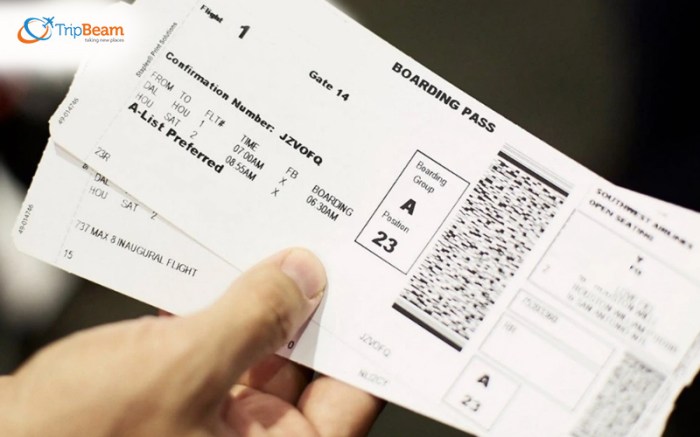Rtw Airline Tickets: Unlock the world with round-the-world airfare. This isn’t just about flights; it’s about crafting an unforgettable adventure. We’ll dissect the intricacies of these tickets, from understanding the different types and advantages to mastering the art of booking and managing your epic journey. Get ready to transform your travel dreams into reality.
This comprehensive guide will walk you through every step, from initial planning and budgeting to navigating airline websites and handling potential travel disruptions. We’ll cover essential factors like visa requirements, travel insurance, and packing strategies, ensuring a seamless and stress-free experience. Learn how to find the best deals, optimize your itinerary, and maximize your global exploration.
Managing an RTW Trip: Rtw Airline Tickets

Planning a round-the-world (RTW) trip is ambitious, demanding meticulous preparation. But the real test of your organizational skills beginsafter* you’ve booked those flights. Successfully navigating potential disruptions and unforeseen challenges is crucial to maximizing your experience and minimizing stress. This section provides actionable strategies for managing your RTW journey, from flight changes to baggage handling and everything in between.
Flight Changes and Cancellations
Unexpected events can impact even the most meticulously planned itineraries. Knowing how to handle flight changes or cancellations is paramount. A proactive approach, combined with the right resources, can significantly reduce the impact on your RTW adventure. Always keep copies of your itinerary, confirmation emails, and contact information for your airlines readily available, both digitally and physically.
- Understand your airline’s policies: Before departure, thoroughly review your airline’s policies regarding changes and cancellations. Note any fees associated with modifications and the procedures for requesting them. Airlines often have different policies depending on the ticket type and fare class.
- Document everything: Keep records of all communication with airlines, including emails, chat logs, and phone call notes. This documentation is vital if you need to escalate a dispute or seek compensation.
- Act swiftly: If a flight is cancelled or significantly delayed, contact the airline immediately. The sooner you act, the more options you’ll likely have for rebooking.
- Consider travel insurance: A comprehensive travel insurance policy can cover expenses related to flight cancellations or significant delays, offering financial protection and peace of mind.
Baggage Allowance and Lost Luggage
Managing your luggage across multiple flights and destinations requires careful planning. Understanding your baggage allowance and having a plan for lost or delayed luggage is essential for a smooth RTW experience.
- Check baggage allowances: Each airline has its own baggage allowance policy. Check these allowances carefully before your trip, ensuring you pack appropriately to avoid excess baggage fees. Note that allowances can vary depending on the route and class of travel.
- Properly label your bags: Clearly label your bags with your name, contact information, and destination. Consider adding a tracking device for extra security. This simple step significantly increases the chances of your luggage being returned to you quickly if lost.
- Report lost luggage immediately: If your luggage is lost or delayed, report it to the airline immediately at the airport. Obtain a Property Irregularity Report (PIR) number, which will be crucial for tracking your bags.
- Keep valuable items in carry-on: Always keep essential medications, important documents (passport, visa), and valuable items in your carry-on luggage. This minimizes the impact of lost luggage.
Potential Travel Disruptions and Mitigation Strategies, Rtw Airline Tickets
RTW trips inherently involve a higher risk of disruptions compared to shorter journeys. Being prepared for potential delays, cancellations, or other unforeseen events is key to a successful trip.
Examples of disruptions include: flight cancellations due to weather or mechanical issues; unexpected border closures; lost or delayed luggage (as discussed above); and personal emergencies.
Mitigation strategies include: building buffer time into your itinerary; booking flights with reputable airlines known for their reliability; purchasing travel insurance; having backup plans for accommodation and transportation; and staying flexible and adaptable.
The Importance of Travel Insurance
Travel insurance is not just a suggestion for an RTW trip; it’s a necessity. It acts as a safety net, providing financial protection against a wide range of unforeseen circumstances.
A comprehensive travel insurance policy can cover medical emergencies, trip cancellations or interruptions, lost or stolen belongings, and even emergency evacuation. The cost of insurance is a small price to pay compared to the potential financial burden of unexpected events during a long and complex journey like an RTW trip. Consider policies that offer 24/7 emergency assistance, as this can be invaluable in a crisis.
Planning a round-the-world trip using Rtw Airline Tickets is an ambitious undertaking, but with careful planning and the right resources, it’s entirely achievable. Remember, the key is meticulous preparation – from researching visa requirements and crafting a detailed itinerary to securing the best deals and understanding potential challenges. By following the strategies Artikeld in this guide, you can confidently embark on the adventure of a lifetime, creating memories that will last a lifetime.
Don’t just dream it – plan it, book it, and experience it.

